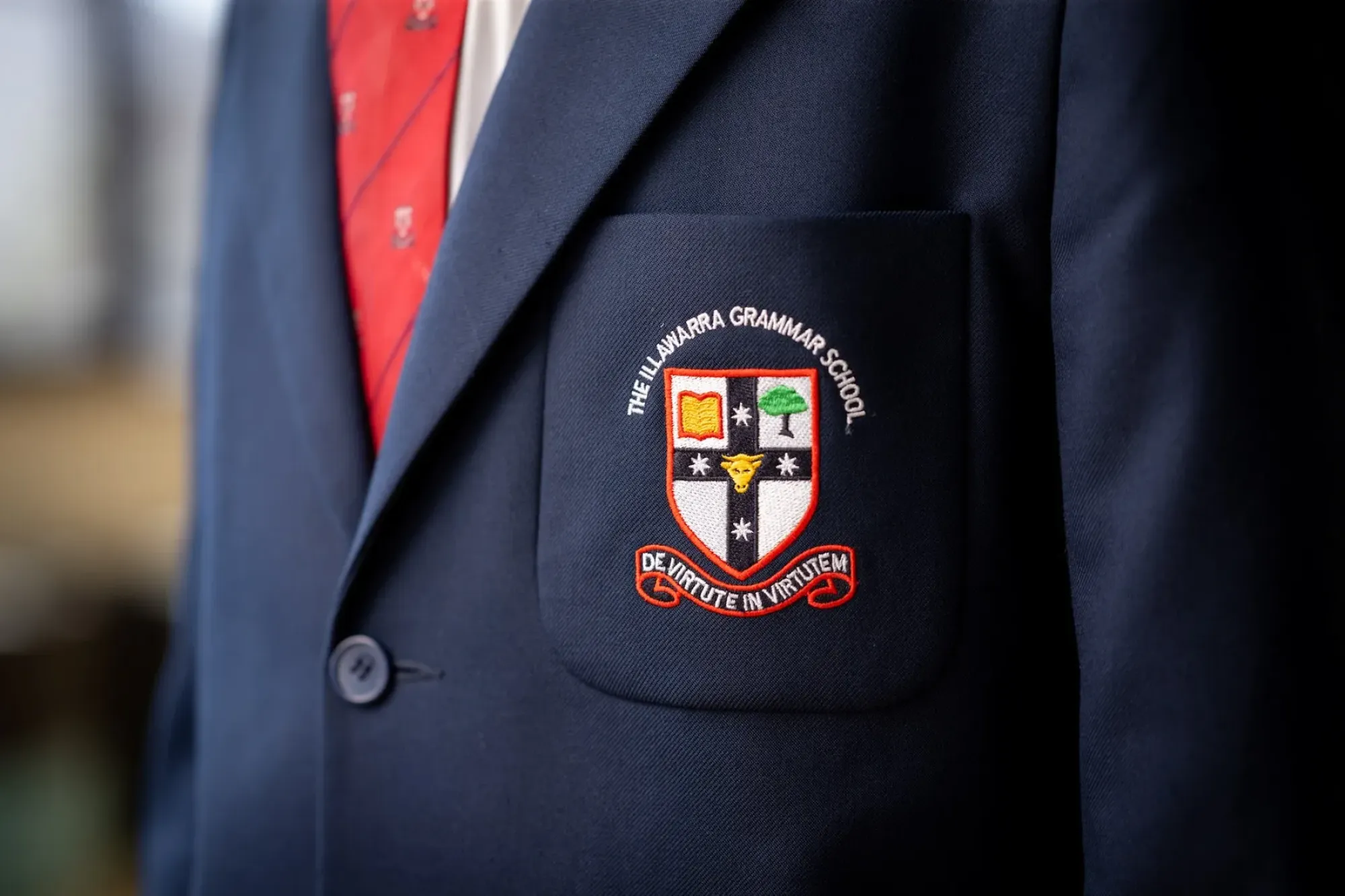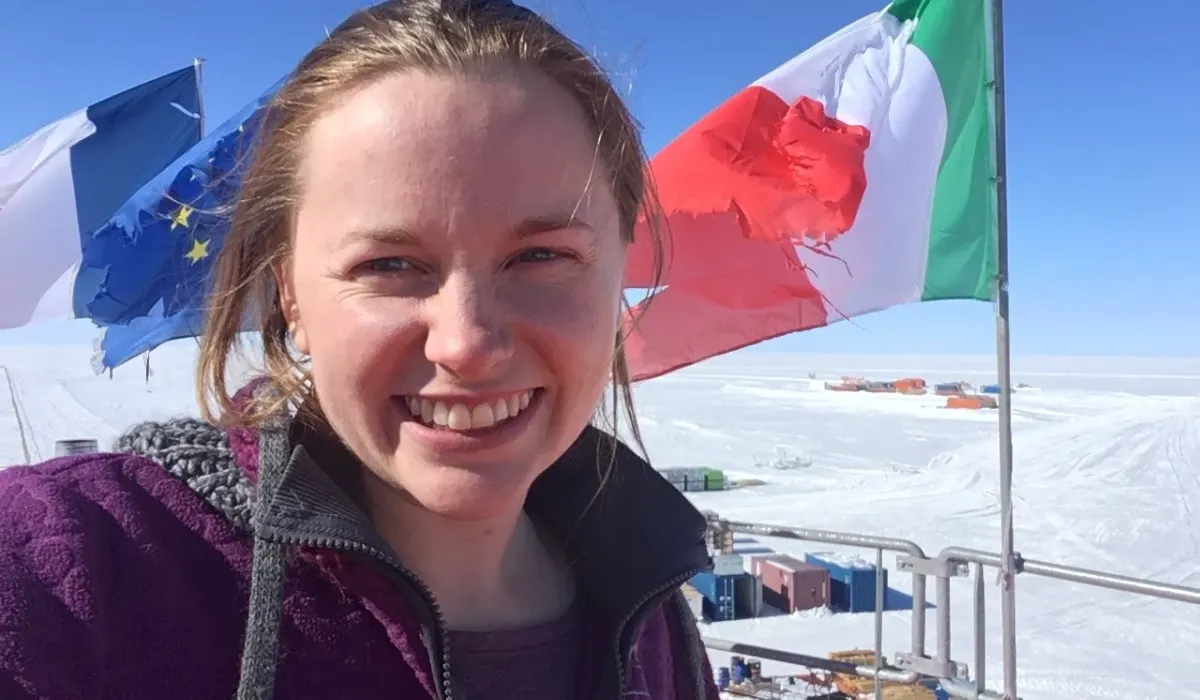
Alumni Showcase | Meganne Christian
As many Australians are finding themselves impacted by COVID-19, we recently reconnected with Dr Meganne Christian (Alumna 2004), who has a unique perspective on the crisis. Having worked in Antarctica and now living in Northern Italy, Meganne is no stranger to isolation. In this Alumni Showcase, read all about Meganne’s journey since graduation from TIGS and her advice for anyone currently in isolation.
What have you been doing since you graduated from TIGS? (work, hobbies etc.)
After graduating from TIGS in 2004 I went to UNSW to do a Bachelor of Engineering in Industrial Chemistry. Having a Co-op Scholarship, I did industrial training placements throughout the degree at Sydney Water, Siemens Water Technology and BlueScope Steel. I really enjoyed these but decided to continue my studies and do a PhD. My research was focused on hydrogen storage for fuel cell vehicles, which was both fascinating and challenging, and I had the opportunity to present at a number of different international conferences. After my PhD, in 2014, I was keen to get some experience overseas so I moved to Italy with my husband and have been working at the National Research Council of Italy in Bologna ever since. My work is part of the European Graphene Flagship, which is a huge network of researchers with common goals and a pool of funding to bring a promising new material, graphene, from the lab to the market. An amazing thing I got to do as part of the Graphene Flagship was to test one of my materials for satellite cooling devices during a “parabolic flight”, where I experienced weightlessness under microgravity conditions. It’s hard to top that for an extreme experience, but last year I spent a whole year isolated in the middle of Antarctica with just 12 other people as winter over atmospheric physicist and meteorologist at the Franco-Italian research base, Concordia Station. As you can see, my goal is to push my own limits while carrying out cutting edge scientific research.
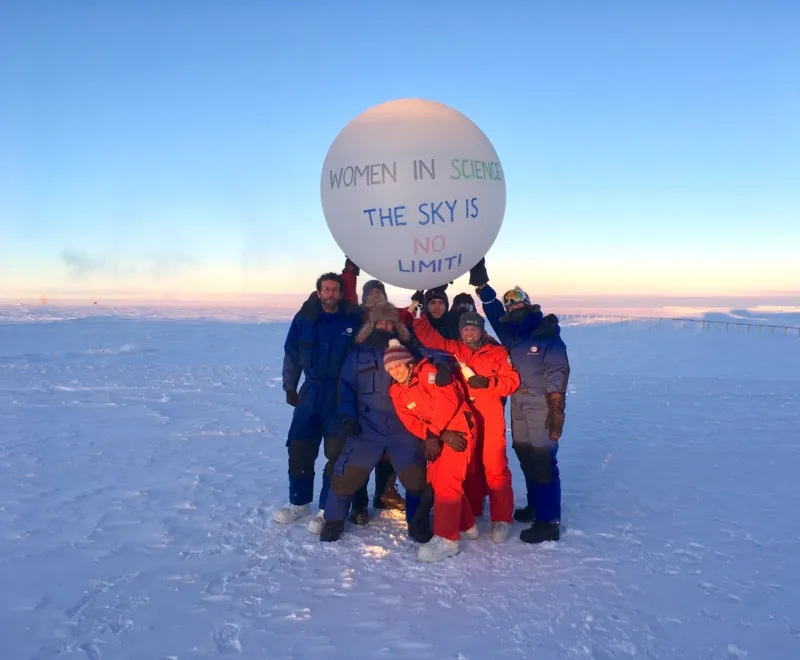
As for hobbies, I haven’t stopped being on stage since I discovered a love for it in primary school. At uni, I spent a lot of time on stage and backstage for the Revue Sketch Comedy shows. Even now I sing in a number of different choirs, including by distance with a women’s barbershop chorus in Canberra. A few years ago we competed in the Harmony Classic division of the international Sweet Adelines competition in Las Vegas and won it with a really fun song and dance package. We were going to be competing again this year but it looks like that may be postponed. Other than singing, I love to hike in the hills around Bologna with my little dog, play guitar, read, knit, sew, travel…the list goes on!
What was your fondest memory at TIGS?
My most unforgettable moments from my time at TIGS were definitely related to the Future Problem Solving (FPS) programme. I started in Year 6 and actually haven’t stopped my involvement in the programme even now, as an international evaluator. Going to the national competition was an exciting moment every year (once we qualified!) and I will never forget when my team won first place and got to go to internationals in 2002. Then we were the first team to win internationals from TIGS, which was absolutely amazing. Both moments had in common that none of the four of us actually processed that it was happening and had to be prompted by the people around us to go and collect our trophies. I have a lot of other fond memories of TIGS… spending time with friends at lunch, music and drama competitions, school camps, exchange programme to Paris, friendly rivalries in maths class…
How have you been affected by the current COVID-19 crisis?
Living in northern Italy, my daily life has been hit very hard by the COVID-19 crisis. The whole country has been in lockdown for nearly two months now: we can only go out for groceries or pharmacy supplies (and then only one at a time, wearing a mask), and almost everybody is working from home. “Phase 2” has just begun, so a few restrictions have started to be lifted, but there’s still a long way to go. Various events have been cancelled or postponed, including conferences, meetings, my post-Concordia debrief, rehearsals, various concerts and this year’s international women’s barbershop competition. The National Research Council, along with all public entities in Italy, are officially in emergency mode until the end of July. As a consequence, my work life has drastically changed. I can’t do any lab work so I’ve had to find other ways to keep the research going. I’m writing a review article with a colleague about a topic that I would like to start working on as soon as I get back into the lab, so I’m learning a lot and keeping on top of current research by doing that. I’m also working on a side project with a team of colleagues to make a machine learning system to help pre-diagnose COVID-19.
Emotionally, it has been an interesting journey. Before it really hit I was quite blasé about it, but over time, as the situation deepened, I became more worried about the economy, friends and colleagues that it might affect, and the hospital system. I then saw the same emotional journey happen a bit later with my friends and family in Australia and tried to help them understand more quickly how serious it really is. On a personal level, I am lucky because I still have a job and a relatively large apartment with plenty of outdoor space just as we are coming into spring. It could be a lot worse!
As someone who has worked in isolation previously, do you have any tips or advice for anyone now finding themselves isolated?
I have a few tips, although they may not be relevant to everyone’s situation:
- Keep reminding yourself why you are doing this…at Concordia, it was for climate change research and in this situation it is to slow the spread of COVID-19, both really important goals.
- Think about the ways in which you are lucky…at Concordia, it was the unique location, in this situation I think about being able to spend more time with my family.
- Keep active in some way: there are a lot of great online fitness videos.
- Make things: keep that creativity flowing. I find that knitting, sewing and cooking give me a great sense of fulfilment. Make music.
- Keep in contact with friends and family through technology. At Concordia, we were limited to WhatsApp but here there is a huge range of possibilities. We found that having themed parties on weekends helped boost our morale: get creative with online parties.
- Make sure you have some space for yourself in your home, a little retreat, even if it’s only for a few minutes.
- Catch up on some rest so you can go back refreshed rather than run-down when it is all over.
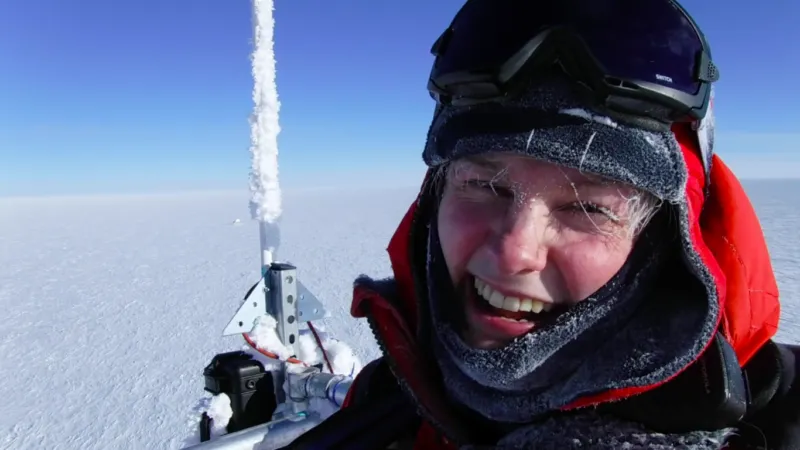
When you were in Antarctica, how did you stay productive and focuSsed on your work?
At Concordia, it wasn’t hard to stay focussed on my work because it was so unique and I knew it was a once in a lifetime opportunity that not many people get, so I made the most of it. I’m also really committed to the environment, so I just had to remind myself of the goals of the research to stay motivated. Having said that, it was a long time and the conditions were harsh. To do my work, I had to go outside and tramp through the snow in temperatures that got down to less than -100 °C, wearing lots of layers and a thick polar suit over it all. It was tiring! Add to that the tricks that the 100 days of darkness play on your sleep patterns and general mood, and you can see that it wasn’t easy. So to keep going steadily, I had a routine but I kept it flexible: I always planned to work outside in the morning but didn’t give myself too rigid a timeframe so that I could sleep longer if I was particularly tired. I also had a lot of free time and worried sometimes that I wasn’t making the most of it by writing a book or learning a new language, but looking back I actually did learn a surprising amount despite the many evenings I spent in the world of Italian cinema: technical skills like electronics and programming, soft skills like communication and teamwork, and hobbies like guitar and song-writing. I learnt to take my busy moments and quiet moments for what they were, and I think that peace of mind no matter whether I’m having a super-productive or lazy day has helped me in this second round of isolation.
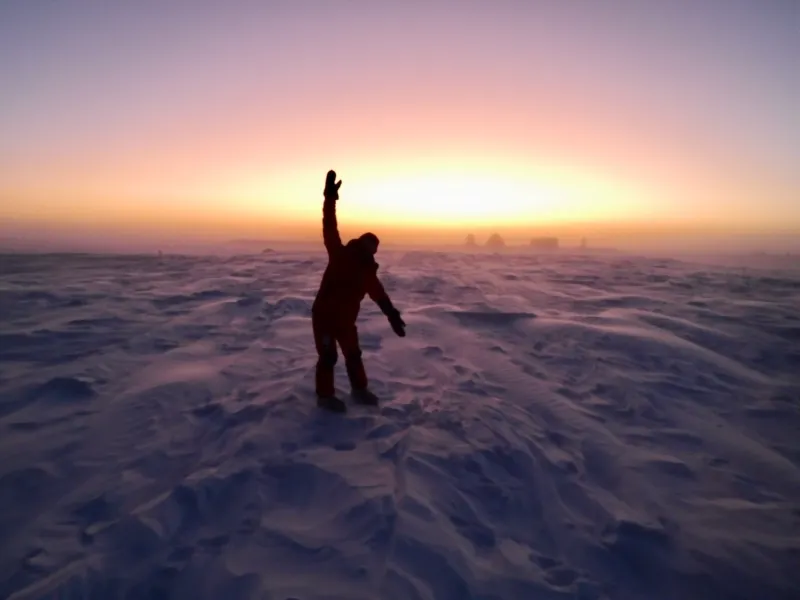
What aspects of your education at TIGS helped you to get you to where you are now?
Probably the most important aspect of my education at TIGS was the encouragement of a broad range of interests. Educationally speaking, I loved maths and science but also languages: I am now working in materials science research in a foreign country. The problem-solving skills I developed in extra-curricular activities like FPS are invaluable in my job. Beyond my work life, I feel incredibly fulfilled by the other activities that I do, particularly music, and it is not hard to integrate them into my life thanks to the time management I learnt even while I was at school and doing Hapkido five to six times per week. Most of all this broad range of interests challenges me to believe in myself and try new things. I’m always looking for the next big adventure.
What connections do you still have with TIGS and your cohort?
For now, my contact with most of my cohort is limited to the occasional glimpse of their lives on Facebook, a lovely conversation here and there, and a rare catch up when I get back to Australia. It was fascinating to go back to TIGS and speak to the Junior School at the end of last year on my way back from Antarctica, even reconnect with some of my teachers. If anybody passes by Bologna, I would be happy to host them!
